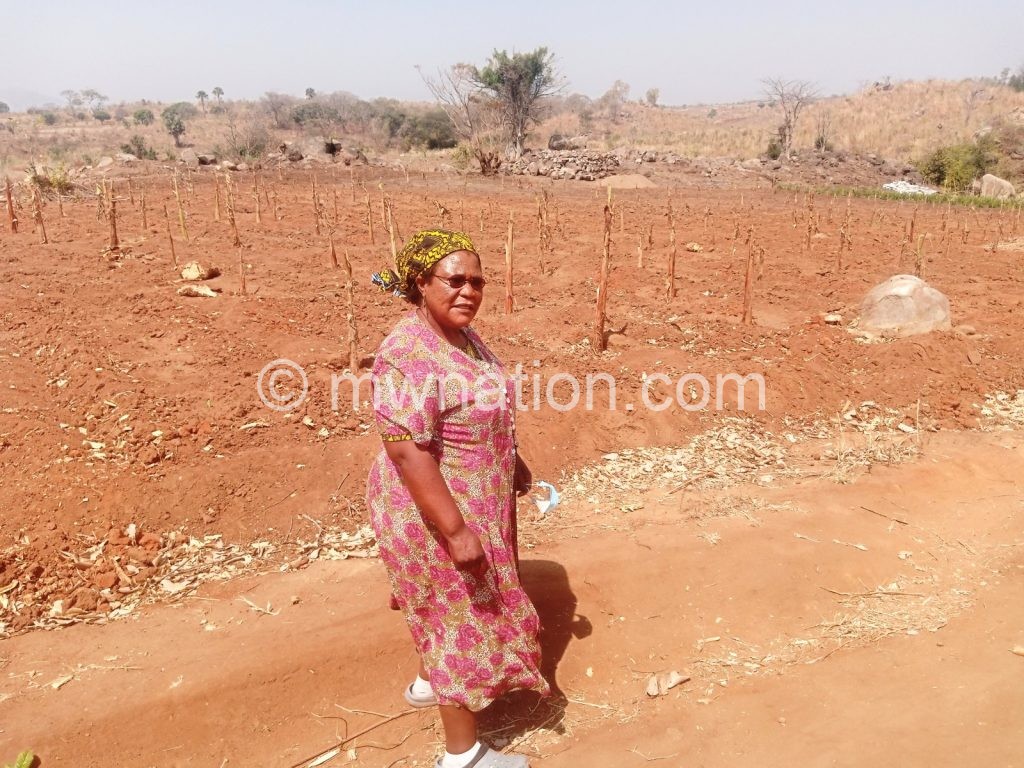Susan Chimbayo: Founder of Nandolo farmers association of Malawi
A pacesetter—that is how one can best describe Susan Chimbayo—Malawi’s own version of the Iron Lady.
Her fierce determination and unwavering go-getter spirit saw her founding and registering Nandolo Farmers Association of Malawi (NFAM) in 2015.

The organisation has since scaled-up and now comprises over 35 cooperatives and five commercial farmers across the country.
Through this initiative, she has given new hope to nandolo farmers in Malawi.
“NFAM was born out of the need to move pigeon-pea farmers forward-a task that could only work if farmers combined forces to overcome common challenges as well as explore more available opportunities,” Susan Chimbayo said.
As if that is not enough, Chimbayo, who lost her husband, the late General Joseph Chimbayo in 2011, is the first woman to invest in an agriculture-tourism farm which is also becoming a school of excellence imparting modern intensive farming skills to underprivileged youth and women.
In an interview recently at her Lirangwe (Blantyre)-based Ultimate Agri-Tourism Farm, Chimbayo said she went into fully- fledged farming to avoid stress after the death of her husband.
“I did not bury my head in the sand when I lost my dear husband. Although I was into small-scale [subsistence] farming before I engaged an extra-gear and ventured into commercial farming.
She said that she started small with 2.5 hectares at Mizange village, Traditional Authority (T/A) Chigaru and currently has grown to over six hectares.
The aim of the farm is to promote agriculture and tourism which could help empower local communities economically, enhance the local tourism industry and bring forex.
Chimbayo, who is the managing director of the farm, said they have harnessed water from Lirangwe River to irrigate banana plantation, grow Irish potato in used sacks, water different types of vegetables and beans, support poultry and fish farming and rearing cattle in a zero-grazing for milk, manure and biogas production for alternative energy production.
“We are initiating an intensive stand-alone farm where we are harnessing water from the river for mixed farming using gravity-fed irrigation after pumping the water from the river using a solar-powered water pump.
“We are launching into large scale ducks and other birds rearing which will be used to fertilise and control pests and worms around our fish ponds. Cattle rearing on zero grazing style will help in the production of biogas for powering the farm and intensify greenhouse farming,” she said.
She added that the last phase will be to construct an economic lodge where people will come to enjoy organic food whilst appreciating the agricultural initiatives taking place at the farm.
Commenting on the farming school, Chimbayo said many youths in the area are staying idle, yet there is a lot of money they could get through farming to achieve their goals.
“We have started with training seven young men who dropped out of school because of various reasons, finances being the major one. We are training them on agricultural-entrepreneurship. We are mentoring them to replicate whatever we are doing at the farm in their gardens,” she said.
Chimbayo also said she intends to pay school fees for those that need fees to go back to school, buy starter-packs tools for those that want to pursue various vocational skills and pay driving school fees for others at the end of the initiative.
One of the students, Beaton Baison, said most youths take agriculture as a last resort, but he has learnt that it is big business.
“Lirangwe River is an all season river, but the youth remain idle instead of harnessing the river through intensive irrigation agriculture and earn an income,” he said.
Subsequently, Antony Mwenda, the Ultimate Farm manager said they have planted over 1 300 green bananas which will mature after nine months.
Further, they have planted tomatoes, beans, green maize and Irish potatoes using the Israel technology of sack cultivation which gives three times more yield than the conventional Irish potato farming.
“We intend to venture into animal rearing because this land needs a lot of animal manure as it is not loam soil. We are going against the notion and theory that you need loam soils to do agriculture. Agriculture needs you, water and manure to thrive.
“We want to create a synergy whereby all agricultural activities will build on each other and be able to finance other additional projects without actually pumping in extra resources,” he said.
Antony is a professional lawyer with a passion for agriculture where he has devoted his free time to enhance the project.
He says they will do furrow, drip and sprinkler irrigation using gravity to water the crops while the biogas produced from cattle waste will be used to power the farm.
“We want to attract tourists and impart agricultural skills and knowledge to the communities simultaneously. We are hopeful of contributing towards the Tonse Alliance philosophy of creating one million jobs in the country. So far, we have done this to seven, but our intention is to create over 100 permanent jobs directly and many more indirectly from ultimate farm.
“Apart from training youths in agri-entrepreurship, we will save immensely on importation and maybe join the group of exporters since currently people are buying bananas from Mozambique and Tanzania ,” Antony said.
Susan Chimbayo is a mother of four— two boys and two girls and she has three grandchildren, but is very energetic and hardworking.
She has worked for Blantyre Printing and Publishing Company for 15 years and moved on to being media manager and later accounts executive.
She holds an advanced diploma in business management.





